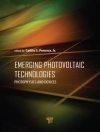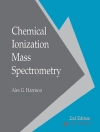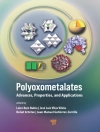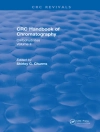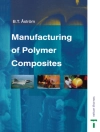The Handbook of Liquid Crystals is a unique compendium of knowledge on all aspects of liquid crystals. In over 2000 pages the Handbook provides detailed information on the basic principles of both low- and high-molecular weight materials, as well as the synthesis, characterization, modification, and applications (such as in computer displays or as structural materials) of all types of liquid crystals.
The five editors of the Handbook are internationally renowned experts from both industry and academia and have drawn together over 70 leading figures in the field as authors.
The three volumes of the Handbook are designed both to be used together or as stand-alone reference sources. Some users will require the whole set, others will be best served with one or two of the volumes.
Volume 1 deals with the basic physical and chemical principles of liquid crystals, including structure-property relationships, nomenclature, phase behavior, characterization methods, and general synthesis and application strategies. As such this volume provides an excellent introduction to the field and a powerful learning and teaching tool for graduate students and above.
Volume 2 concentrates on low-molecular weight materials, for example those typically used in display technology. A high quality survey of the literature is provided along with full details of molecular design strategies, phase characterization and control, and applications development. This volume is therefore by far the most detailed reference source on these industrially very important materials, ideally suited for professionals in the field.
Volume 3 concentrates on high-molecular weight, or polymeric, liquid crystals, some of which are found in structural applications and others occur as natural products of living systems. A high-quality literature survey is complemented by full detail of the synthesis, processing, analysis, and applications of all important materials classes. This volume is the most comprehensive reference source on these materials, and is therefore ideally suited for professionals in the field.
Innehållsförteckning
MAIN-CHAIN THERMOTROPIC LIQUID-CRYSTALLINE POLYMERS.
Synthesis, Structure and Properties (A. Greiner, et al.).
Defects and Textures in Nematic Main-Chain Liquid Crystalline Polymers (C. Noel).
SIDE-GROUP THERMOTROPIC LIQUID-CRYSTALLINE POLYMERS.
Molecular Engineering of Side Chain Liquid Crystalline Polymers by Living Polymerizations (C. Pugh & A. Kiste).
Behavior and Properties of Side Group Thermotropic Liquid Crystal Polymers (J. Dubois, et al.).
Physical Properties of Liquid Crystalline Elastomers (H. Brand & H. Finkelmann).
AMPHIPHILIC LIQUID CRYSTALS.
Amphotropic Liquid Crystals (D. Blunk, et al.).
Lyotopic Surfactant Liquid Crystals (C. Fairhurst, et al.).
Living Systems (S. Hoffmann).
Cellulosic Liquid Crystals (P. Zugenmaier).
Index Volumes 1 – 3.
Om författaren
Dietrich Demus is the editor of Handbook of Liquid Crystals, published by Wiley.
John W. Goodby is currently Chair of Materials Chemistry at the University of York, UK. He has published over 450 papers, given 170 plenary or invited lectures and holds 55 patents. John Goodby belongs to the top 5%-cited chemists in the world. His research in liquid crystals has been recognized by the George W. Gray Medal, the Tilden Lectureship of the Royal Society of Chemistry (RSC), an Honorary Doctorate from Trinity College, Dublin, and the Interdisciplinary Award of the RSC.
George W. Gray CBE FRS was a Professor of Organic Chemistry at the University of Hull who was instrumental in developing the long-lasting materials which made liquid crystal displays possible. He created and systematised the liquid crystal materials science, and established a method of practical molecular design.
Hans W. Spiess is the editor of Handbook of Liquid Crystals, published by Wiley.
Volkmar Vill is Professor of Organic Chemistry at the University of Hamburg, Germany, and head of the IT service of the chemistry department. He is author of over 160 papers including original papers, books and software products. His research is focused on liquid crystals, organic materials, chemical information technology and the management of hazardous substances. Volkmar Vill developed numerous databases and information systems such as the liquid crystal database Liq Cryst and the Sci Dex system to store and organize scientific data, information and knowledge.


